The Bachelor as Young Scholar: Humanity-Centric Education Process in an AI World
The world of higher education is standing at a challenging crossroads. With the rapid emergence of Artificial Intelligence (AI), the Internet of Things (IoT), and other forms of digital automation, the traditional method of learning is being reshaped faster than our institutions can adapt. As the mode of teaching and learning become increasingly sophisticated and accessible, we must ask several foundational questions, including what make student learning, what make undergraduate’ scholarship, and what make the human mind itself, in an era when machines can perform so much of what students were once trained to do?
I am of the view that the existing framework of assessment in universities must undergo a judicious and principled shift, one which is grounded in awareness of the growing disruptions brought by artificial systems and one which is deeply rooted in principles and values (thawabit) that nurture humanity rather than dilute it.
AI as a Disruptive Force in the Learning Process
While AI can open doors to efficiency and innovation, it can also become a quiet adversary to authentic learning. When students rely heavily on automated systems to complete assignments, generate ideas, or solve problems, the essential intellectual struggle that fosters growth of a scholar may be lost. While the process of undergraduate learning is to nurture young scholar (hence befitting the term ‘Sarjana Muda’, as it being styled in Malaysia), learning becomes less about engaging the mind and more about structuring ideas. Note that the term “Bachelor” in English is historically derived from the Latin baccalaureus to mean novice scholar who had completed the first level of university studies, not only a workforce for the world of work. In such a scenario, the university risks becoming a place where procedures to complete courses are completed, credentials are distributed, yet true learning scarcely occurs.
This phenomenon poses a real danger for the human cognitive process which should entail wide reflection, critical thinking, deep engagement which may be outsourced to artificial systems that neither think nor feel. The Qur’ān repeatedly invites us to do tafakkur, tadabbur, and ta‘aqul, leading us to think, reflect, and use reason. If students skip or sidestep this through automation, the very spirit of learning, as emphasized in Islamic tradition, becomes shallow and hollow.
The Outsourcing of Mind: When Learning Becomes Automated
There is an alarming possibility that, without regulation, students will increasingly outsource elaborative thinking that is required in attempting the assignment to AI tools which can perform tasks instantly and elegantly. Essays, review, analyses, summary and even take-home exam can be produced without the students’ intellectual involvement. When this occurs, the student receives credit for work that was never truly theirs, and the learning process is bypassed. In effect, true learning which fundamentally result in the students’ change, arising from interaction with content, processes, and experiences, cannot occur when AI substitutes for the student’s own intellectual effort.
This is not merely an academic issue but an ethical one too. A society where individuals hold qualifications without the corresponding competence is a society that endangers itself. In Islam, the idea of amanah or trust is central. Knowledge is an amanah. Credentials that do not reflect genuine capability betray this trust.
Assessment Without Learning: A Growing Crisis
We must acknowledge a hard truth that many written assessments submitted in universities today may not be the student’s own work. With AI tools capable of producing polished and structured content, the traditional essay or report is increasingly vulnerable to academic displacement. If AI-generated work is passed off as student achievement, then assessment is no longer measuring learning but it merely certifies completion of a study period. This reduces education to a transactional pursuit, in that it is only something to be acquired, not something to be embodied.
Credentialing vs. Nurturing Values: A Distorted Educational Focus
An overemphasis on credentialing individuals who enrol in a course threatens to overshadow the deeper purpose of education. Degrees, certificates, and awards have certain value but they must be substantiated by character, understanding, humility, and the capacity to contribute meaningfully to society. When institutions prioritize output over transformation, they deviate away from the noble mission of nurturing balanced, ethical human beings. Islamic educational philosophy has never been limited to the transfer of information. It has always aimed to shape hearts and minds, cultivating virtues such as sincerity (ikhlas) wisdom (hikmah), compassion (rahmah) and integrity (sidq). These life-enabling competencies cannot be outsourced to AI and cannot be automated.
Reorienting Higher Education: A Humanity-Centric Vision
The orientation of enrolling in a university, or engaging in academic and scholarly activities, should never be rooted merely in self-interest or individual gain. Education, from an Islamic perspective, is fundamentally humanity-centric. It is an act of service to oneself, to society, and ultimately to God, epitomizing the spirit of Rahmatan Lil-Alamin. If universities are to remain meaningful institutions, they must emphasize the intrinsic value of learning, not just its utilitarian outcomes. They must cultivate human beings who can think beyond themselves, who can engage with the complexities of the world, and who can apply knowledge with justice, empathy, and purpose. AI and automation must not become a substitute for human development. Instead, they must be tools that support and augment the flourishing of human intellect, not its replacement.
Towards a New Framework of Assessment
To uphold this humanity-centric vision, universities may need to rethink assessment itself. Approaches such as oral examinations, reflective interviews, in-class handwritten tasks, collaborative projects, and experiential learning assessments may become more vital. Such methods are expected to better capture genuine understanding and reduce the risk of outsourcing learning to machines. The goal of having these so called ‘alternative assessment’ is not to resist technological progress but to ensure that the human mind and ethical conscience remain at the center of the learning process.
As a community of educators, students, policymakers, and thinkers we must recalibrate our educational philosophies. We must reaffirm that the purpose of university education is not merely to produce workforce, but to cultivate human beings capable of reflection, compassion, and responsible action. While AI and IoT are extraordinary developments, they pose challenges that must be addressed before they contaminate the essential fabric of education. If left unchecked, they may usher us into an age where credentials exist without competence, and where learning is replaced by automation.
About the author:
Shukran Abd Rahman is a Professor of Industrial and Organisational Psychology at the Department of Psychology, AbdulHamid AbuSulayman Kulliyyah of Islamic Revealed Knowledge and Human Sciences, International Islamic University Malaysia.
Disclaimer
The views expressed in this article are the author’s own and do not necessarily mirror Islamonweb’s editorial stance.

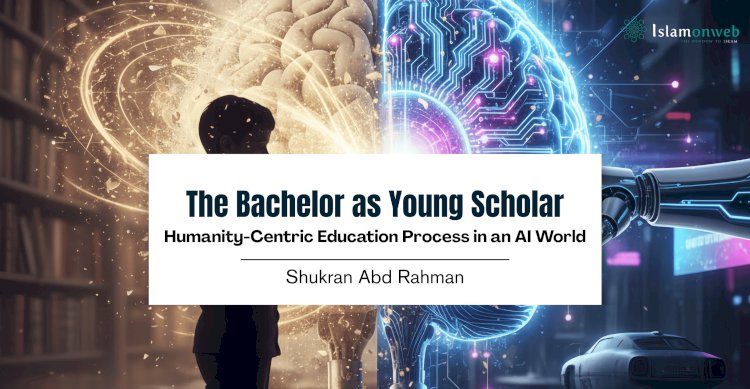


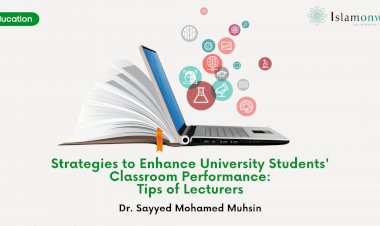

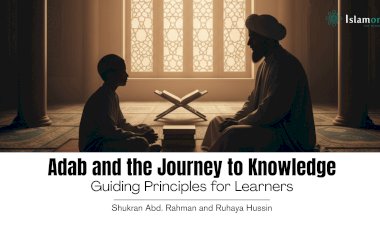
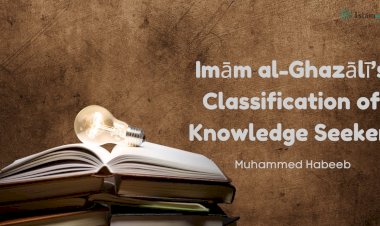
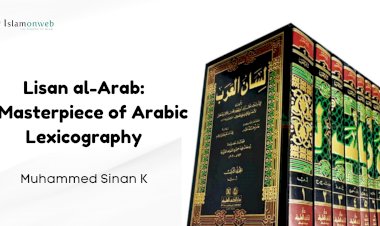
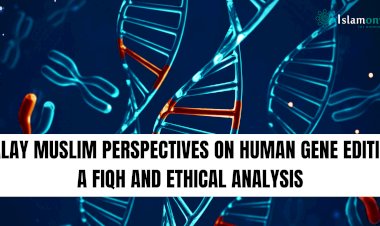














Leave A Comment